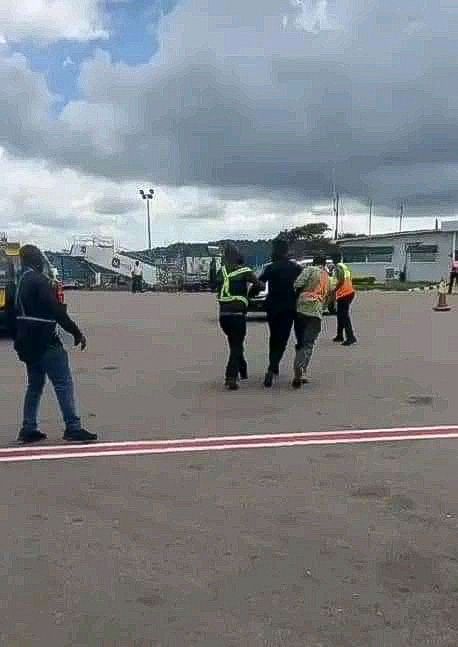In a recent turn of events, the leader of Uganda’s main opposition party, Bobi Wine, faced arrest upon his arrival at Entebbe airport, according to an announcement by the National Unity Platform’s secretary general, David Lewis Rubongoya. The arrest comes as a significant development in the ongoing political landscape of Uganda.
Bobi Wine, whose real name is Robert Kyagulanyi, emerged as the primary rival to President Yoweri Museveni in the 2021 presidential election, challenging Museveni’s decades-long rule in the East African nation. Museveni secured a sixth term in office with 58% of the vote, according to official results, while Bobi Wine garnered 35% and criticized the election as fraudulent.
This is not the first time Bobi Wine has faced arrest, as he has been detained on multiple occasions in recent years. Additionally, his supporters have frequently seen their rallies dispersed, sometimes through the use of force. In anticipation of his return, Bobi Wine’s supporters had planned to gather en masse to welcome him to his home north of the capital, Kampala. However, the police had declared such gatherings as illegal.
Ugandan authorities have a history of resorting to what is known as “preventative arrest” to detain opposition leaders temporarily, often holding them for several hours before releasing them back to their homes, a tactic aimed at quelling potential mass demonstrations. In a similar vein, in September, the Ugandan police announced the suspension of a national mobilization campaign initiated by the NUP due to concerns over public order disturbances.
Bobi Wine’s arrest upon his return to Uganda adds another layer of complexity to the country’s political landscape, which has seen its share of tension and contention in recent years. As the situation unfolds, it will be closely watched by both domestic and international observers for its potential impact on Uganda’s political future.





